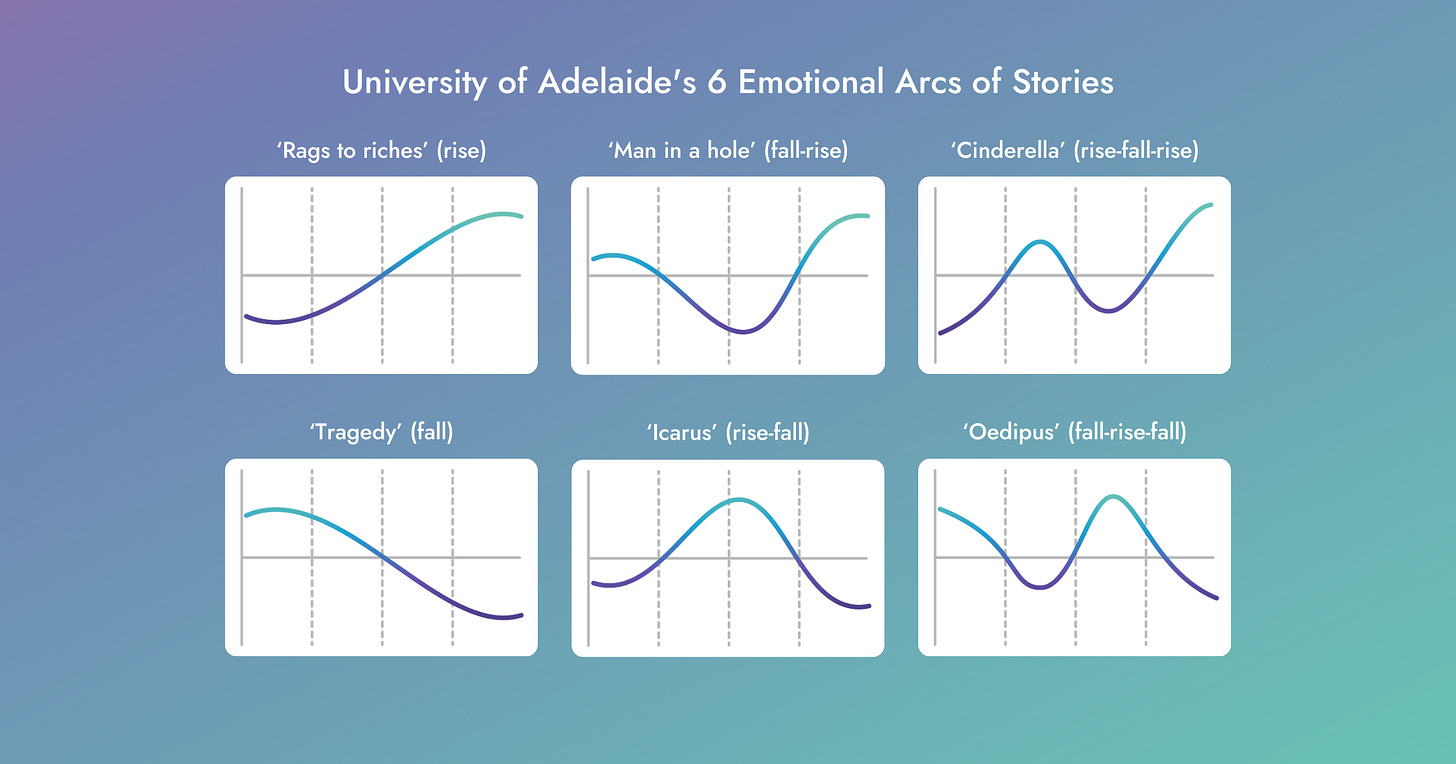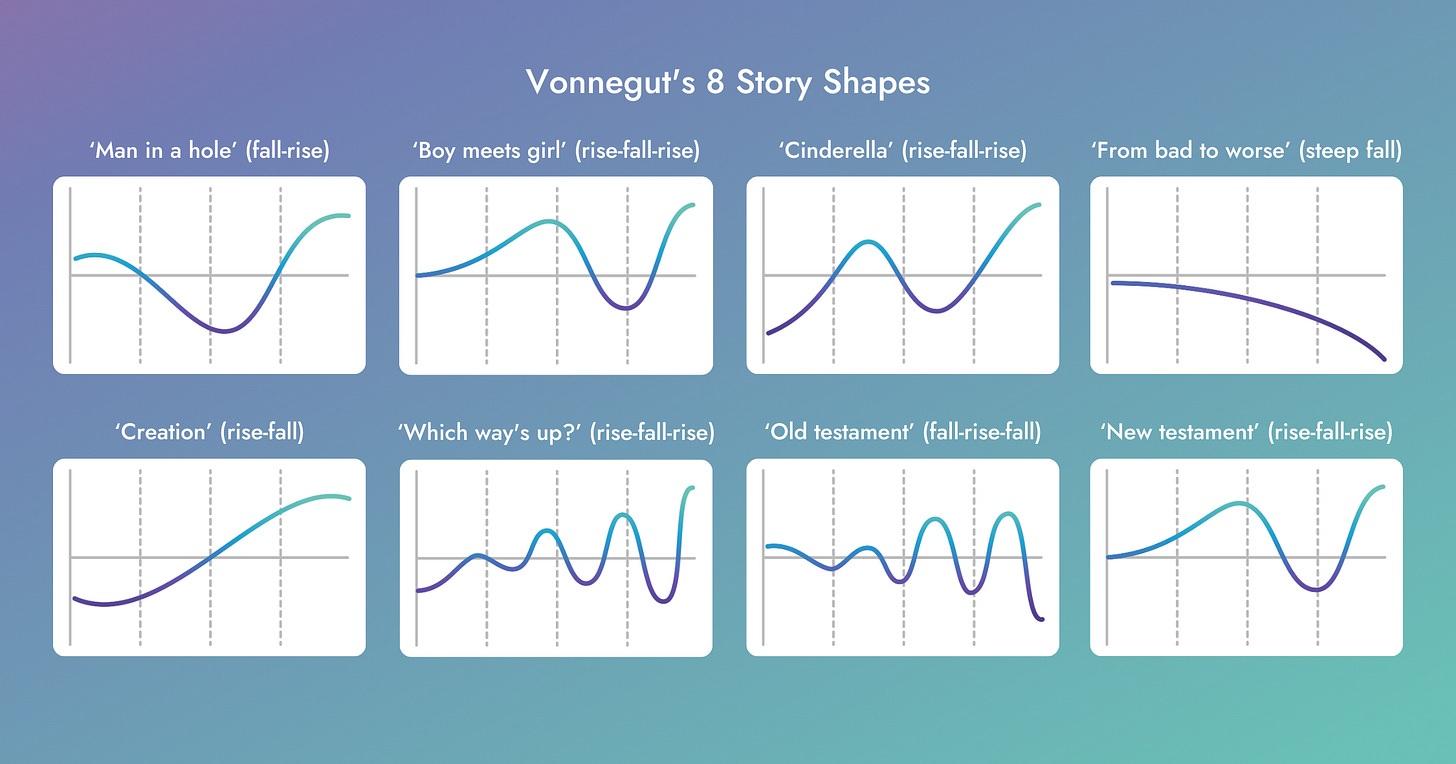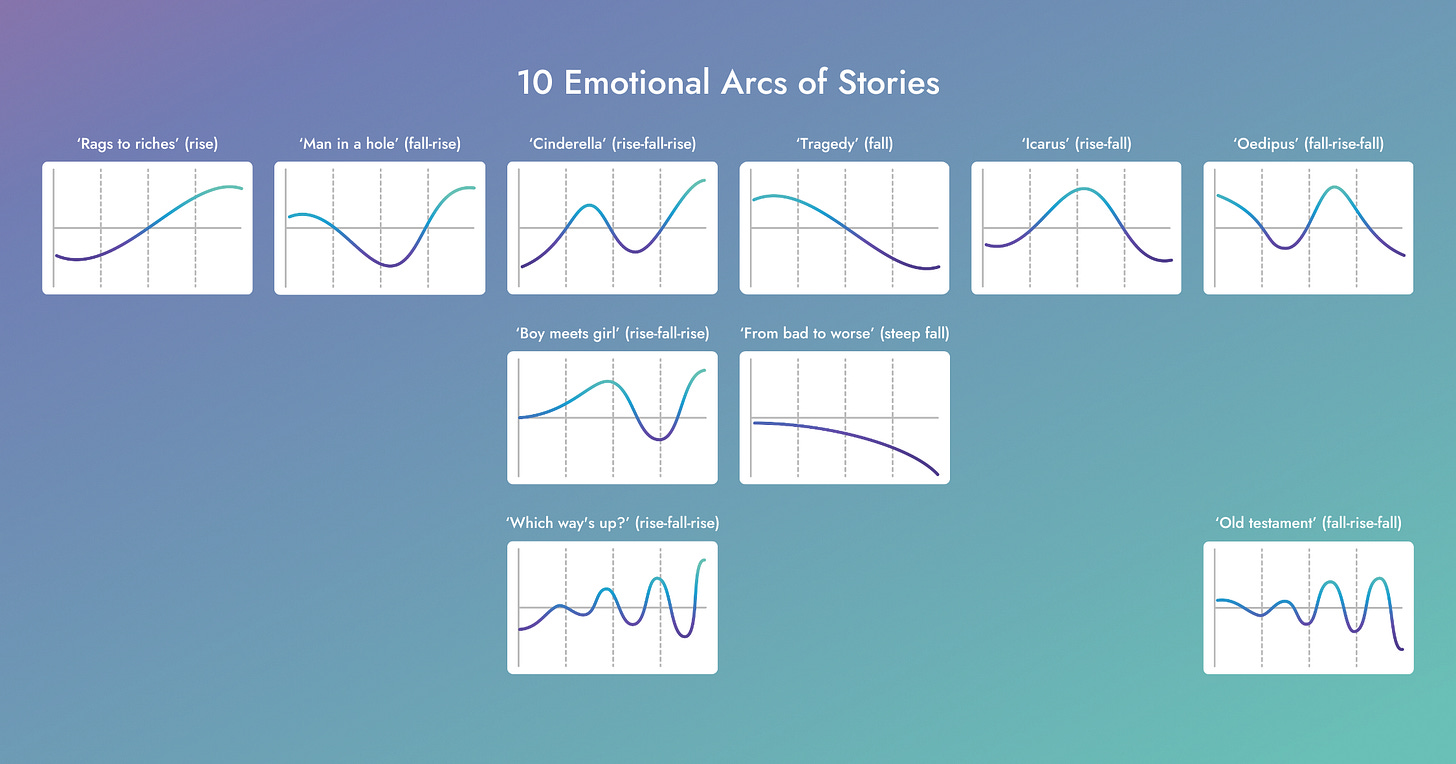The emotional arcs of stories
What does data science tell us about emotional arcs in stories? And what happens when we combine that with the lessons shared by Kurt Vonnegut in his seminal 2004 lecture on the shapes of story?
The emotional arcs of stories
A few months ago I discovered a research study from 2016 by a team of data scientists at the University of Adelaide, where they took 1327 classic novels from Project Gutenberg and plotted the emotional arcs of each story.
As writers, we know that when we’re crafting a story, we’re really designing an emotional experience for our readers. There’s a reason why we describe a story as a rollercoaster. We’re building theme parks out of letters!
If plot structure looks at pacing the story’s events in chronological order, then the emotional arc concerns that rollercoaster — how each of your story beats evokes an emotional response in your reader. What I love most about this study is that it makes that rollercoaster visual real.
The UoA research team found broad support for 6 emotional arcs (page 6). They look like this:
When thinking about the emotional cadence of a story, there’s another resource I really love: Kurt Vonnegut’s lecture on the 8 shapes of stories (which are really 8 structures for the emotional cadence of a story). The UoA team were actually inspired by his work when they did their study.
His shapes look like this:
You can see that the UoA team didn’t find (at least in their data set) evidence for a ‘From bad to worse’, ‘Which way’s up?’ or ‘Old testament’ story arc. And Vonnegut didn’t include the ‘Tragedy’, ‘Icarus’, or ‘Oedipus’ arcs that UoA did.
Note: You could argue that ‘Oedipus’ is a truncated version of the ‘Old testament’ arc, and I think the Rags to riches story arc is similar enough to the ‘Creation’ story arc to be considered the same. Likewise for ‘New testament’ and ‘Boy meets girl’
If you consider both the work of Vonnegut and UoA alongside each other, there’s really 10 emotional arcs, and they seem to be defined by the following factors:
All stories start with either a positive, neutral or negative emotional valence.
All stories end on either a positive or negative emotional valence (never neutral).
The emotional arc of the story either rises or falls after the story starts.
There are anywhere from 1 to 7 changes in emotional valence over the course of the story.
Each successive change is bigger than the one before it.
Bug Fixes in First Draft Pro (v 1.0.62)
We’ve fixed two pesky bugs that crept in (thanks so much to everyone who raised these with me, I appreciate you!)
Comment threads — We fixed a bug in the comments thread that was changing the original author of a comment to be the person who last replied on that thread (confusing!). You shouldn’t see this again 🙂
Google sign-in — Google made some changes to the way that they’re managing single sign-on. It’s now handled through the browser, which means if you’re logged out of your browser, you’ll struggle to get in to FDP. We’ve put some fallbacks in place to help with this, and we’ve updated the login issues help article to help you troubleshoot if you notice this happening.




